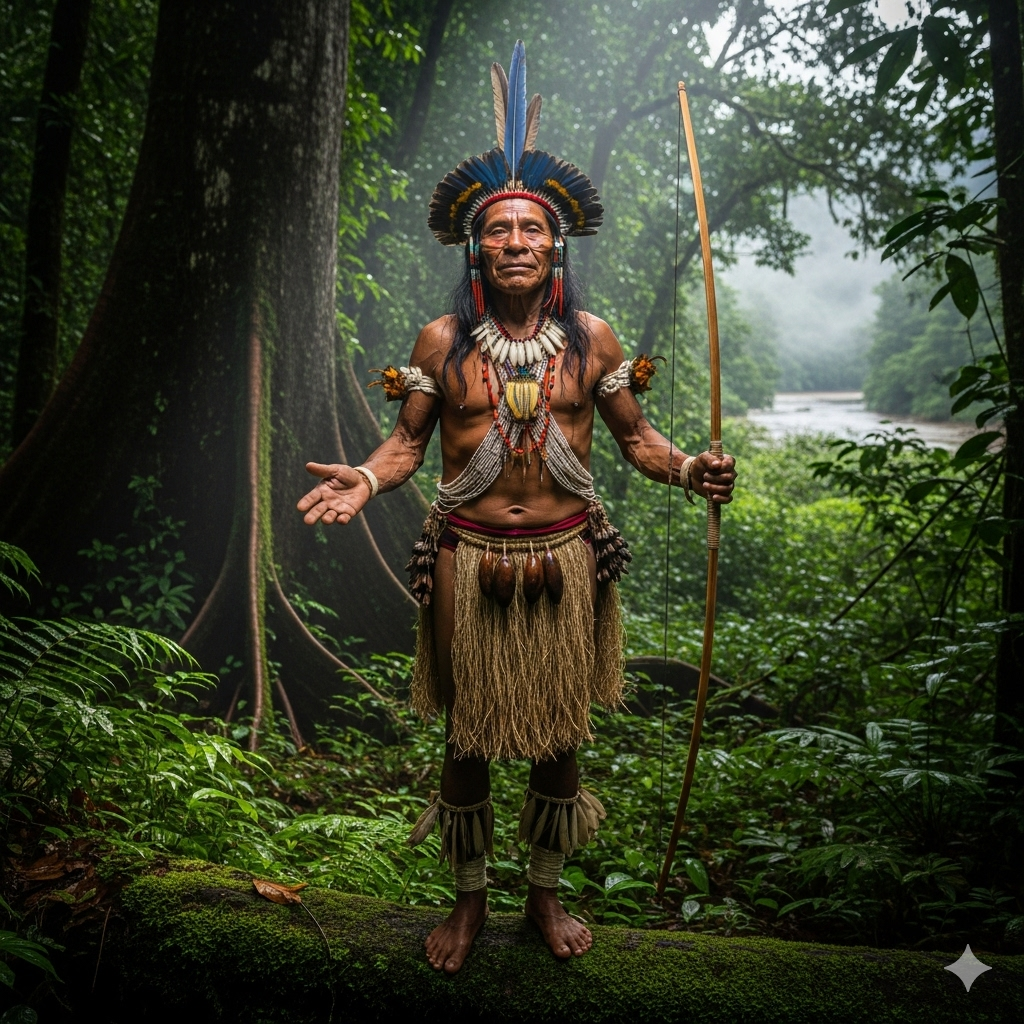
Indigenous Rights
Introduction
The Amazon rainforest is often described as the lungs of the Earth, but for Indigenous peoples it is much more—it is home, heritage, and life itself. For centuries, Indigenous communities have protected the forests, rivers, and wildlife while preserving languages, traditions, and spiritual practices deeply tied to the land.
At Daupara, the focus on Indigenous Rights goes beyond advocacy—it is about ensuring recognition, protection, and respect for the voices of the people who have lived in harmony with the Amazon long before borders or modern states existed.
The Struggle for Land and Territory
Land is at the core of Indigenous rights. For Amazonian communities, land is not property—it is ancestral territory, an identity that cannot be separated from survival.
-
Defending Ancestral Lands – Indigenous nations have been resisting illegal land grabs, deforestation, and extractive industries that threaten both ecosystems and livelihoods.
-
Legal Recognition – Daupara highlights the ongoing fight for governments to recognize Indigenous land rights through constitutional protections and international agreements.
-
Sacred Spaces – Forests, rivers, and mountains are not just resources but sacred beings, central to Indigenous spirituality and cultural continuity.
Protecting Indigenous territories is also one of the most effective strategies for preserving biodiversity and combating climate change.
Self-Determination & Political Voice
Indigenous rights are not only about land but also about self-determination and autonomy.
-
Political Participation – Indigenous leaders are increasingly represented in national and international forums, pushing for policies that defend their communities.
-
Right to Governance – Many communities practice their own systems of governance, rooted in consensus, respect, and collective responsibility.
-
International Agreements – Instruments such as the United Nations Declaration on the Rights of Indigenous Peoples (UNDRIP) affirm the right to self-determination, yet implementation often lags.
Daupara amplifies these voices, ensuring Indigenous perspectives are included in conversations about conservation, justice, and development.
Cultural Survival & Language Rights
For Indigenous peoples, culture is inseparable from rights. Losing language, traditions, or rituals means losing identity.
-
Language Revitalization – Protecting and teaching native languages is an act of resistance against centuries of colonization and assimilation.
-
Knowledge Systems – Indigenous ecological knowledge, passed down orally, is vital for sustainable management of the Amazon.
-
Rituals & Ceremonies – These cultural practices are rights in themselves, ensuring communities remain connected to ancestors and land.
By safeguarding cultural survival, Indigenous rights protect not just communities but the collective heritage of humanity.
Challenges & Threats to Indigenous Rights
Despite global recognition, Indigenous peoples in the Amazon continue to face urgent challenges:
-
Deforestation and Mining – Illegal logging, gold mining, and large-scale agriculture destroy forests and displace communities.
-
Violence Against Leaders – Indigenous activists defending their lands often face threats, intimidation, and even assassination.
-
Climate Change – Shifts in rainfall, rising temperatures, and forest degradation undermine traditional ways of life.
-
Exclusion from Decision-Making – Many policies about the Amazon are created without meaningful consultation with the people who live there.
Daupara documents and shares these realities to build solidarity and demand accountability.
The Role of Indigenous Women
Indigenous women are at the forefront of defending land, culture, and rights. Their leadership bridges environmental justice, community resilience, and intergenerational knowledge.
-
Guardians of Seeds and Food Systems – Women often carry the knowledge of traditional agriculture and medicinal plants.
-
Voices for Justice – Women leaders raise awareness about gender-based violence and push for equality within and beyond their communities.
-
Educators & Storytellers – Through songs, stories, and rituals, women pass cultural knowledge to younger generations.
Their contributions are central to both Indigenous survival and Amazon conservation.
Global Solidarity & the Future of Indigenous Rights
The defense of Indigenous rights is not just a regional issue—it is a global responsibility.
-
Allies Worldwide – Environmental movements, human rights groups, and concerned citizens can amplify Indigenous struggles.
-
Legal Protections – Strengthening international law and enforcing accountability are crucial to protecting Indigenous peoples.
-
The Future of the Amazon – Protecting Indigenous rights directly ensures the survival of the Amazon, benefiting all of humanity.
Daupara stands as a platform to bring these struggles to light, fostering global solidarity with local voices.
Conclusion
“Indigenous Rights” is not a separate chapter in Amazonian life—it is the foundation upon which conservation and culture stand. Without the protection of Indigenous lands, voices, and traditions, the Amazon cannot survive.
Daupara exists to amplify Indigenous leadership, protect ancestral rights, and honor cultural resilience. Through advocacy, storytelling, and solidarity, it ensures that the future of the Amazon is also the future of its people.
Protecting Indigenous rights is more than justice—it is a path to sustaining the Earth for generations to come.